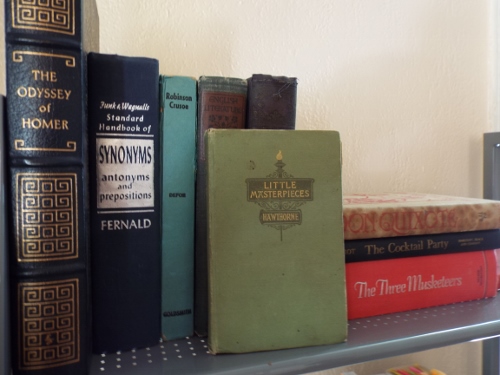Books feel like home. The idea of losing the tactility of printed books invokes terror in me akin to driving off a sheer cliff or voting for Trump to be president. There is no replacement for the weight in one’s hands, thumbing through the pages, breathing the odor of the paper, running fingers over the spine. It’s a visceral reaction, like the smell of mom’s chicken soup or hearing a favorite song over the speakers at the grocery store. The world is rapidly and decidedly transitioning to digital everything, especially media. Luckily for us, the existence of books doesn’t look to be going the way of the dinosaur anytime soon.
I recently attended a lecture by writer and publisher Dave Eggers where he expressed the idea that books were one of the last types of publications still making any real money. Being a writer myself, this thought stuck with me like gum on my shoe, reminding me with every article I read online that I had no way of knowing whether the author was compensated for their work. Digital books have been making a profit ever since the advent of the Kindle—at least there’s that small comfort—however, people still want real books to have and to hold from this day forward, till death do us part.
Dramatics aside, bookstores such as Waterstones have been relinquishing shelf space allocated for Kindle and ebook sales to restock print books, with paper and binding and covers—the works! This is prodigious news for the future of novel and memoir writers, self-help and cooking aficionados, travel gurus, and children’s book authors. There is comfort in knowing that the painstaking work put into writing, editing, rewriting, and often devoting years of one’s life, may still actually be sustainable.
The printing of books undoubtedly affects the future of the writer, but how about the reader? Can you even comprehend not having access to physical books? Envision walking into the public library and instead of row upon row of hard- and soft-covered pages to pull down and settle in with, like an old friend that you are still getting to know, you find only a room of computers and tablets. No huge old reference books with yellowed page edges. No children’s picture books to share with new little buddies in the reading corner. No collections of paperback mystery novels waiting to be solved in the last few pages. No young adult fantasy fiction bringing budding minds to places only dreamed of. No trace of familiar spines of hardbound sirens luring you with their lyrical titles . . . pick ME up . . . read me . . . read me . . . tempted by the enticing rabbit hole of Lewis Carroll or the whirlwind tornado of L. Frank Baum.
Could we ever recover from the burning of that particular cultural bridge? What would become of us as a people? How many steps could be between the extinction of printed books and a society that is indistinguishable from the one portrayed in the movie Idiocracy? I don’t know about you, but I hope we never have to find out.

